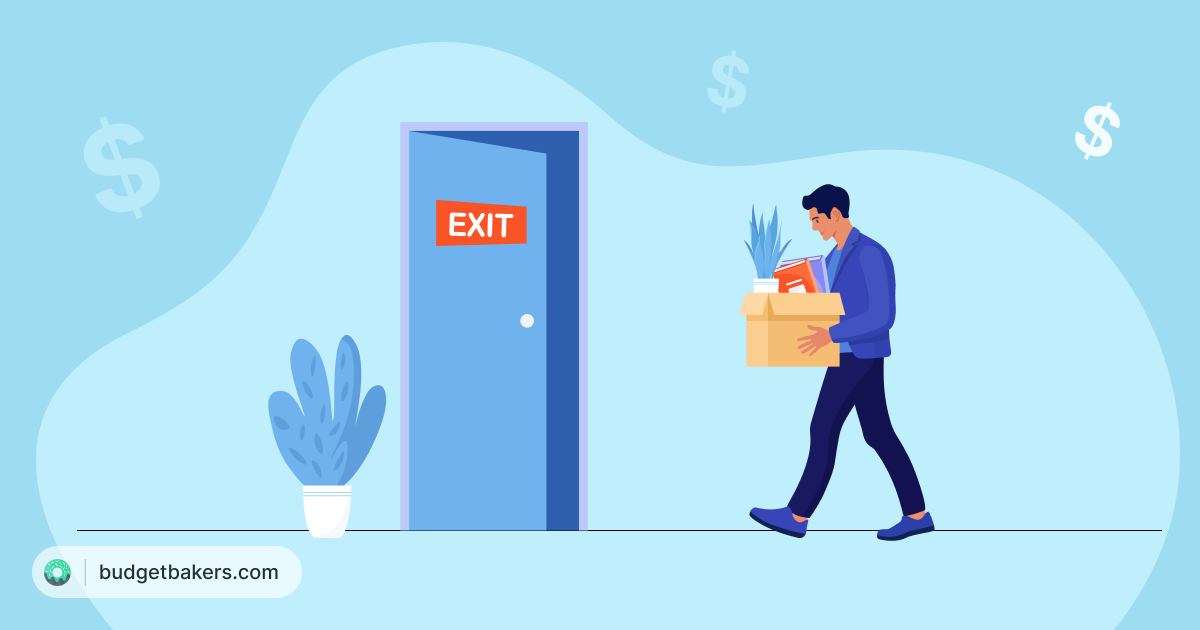You’re finally doing a job you love and are earning a good enough salary. But is your money running out too soon? Do you find yourself frustrated just days after payday, struggling to come up with ways to pay that nth bill? And, would a tiny emergency send your finances into a tailspin?
You’d be surprised to know that, just like you, more than 60% of Americans would also be caught completely off guard in the event of an emergency. This number is around 40% in the UK and Australia, around 60% in India and close to 70% in South Africa. Increasing living costs, student loan debts and consumer spending are all to blame, but, at BudgetBakers, we believe that personal finance is unique and, well, personal.
No matter how much you earn or how much debt you are in, there is always a way out to regain control over your finances. But to do so, you need to know what exactly is affecting your finances and what’s stopping you from living a richer life. Only once you find this out, can you devise a plan that’ll tackle it and get your money to behave well.
So what’s wrong with your money habits? Let’s take a quick look at what could be the potential problem behind all your frustration.
Are You Spending Too Much On Housing?

One of the main mistakes that most people make is to spend a lot on housing. They either get stuck paying a huge rent or mortgage payment all their lives. It is a classic case of ‘keeping up with the Jones’ or living beyond your means.
Remember that you’re, in fact, making trade-offs with your money. Spending more than warranted on your house means that you’re left with very little to spend on things that really matter.
There are many theories that personal finance experts put forward about what percentage of your income should be set aside for mortgage or rent payments. According to Time Magazine, the 28/36 rule is ideal; which means your monthly housing costs must not be more than 28% of your gross monthly income and your total debt on housing should not exceed 36%.
How To Fix This
This is a question of priorities and may not always be solved by a short-term fix. Ask yourself if you’re okay making the sacrifices you do every month just to be able to live in your current home. If your answer is yes, then you should look out for side hustles or more income sources to increase your income level. Here are a few ideas that might work for you. Else, look at refinancing your mortgage to make it more affordable or if you are a renter, consider moving to a cheaper place to be able to free up some money.
Are You Battling A Spending Problem?

Getting placed in a good job and earning decently means you must have enough money to cover your fixed expenses, save a bit and even spend on things you like. But are you overspending? Do you buy things you don’t really need compulsively? Do you feel guilty after a shopping spree? Or, worse are you left with no more money just days after you get your paycheck?
Compulsive buying disorder or shopping addiction is a recognised psychological condition. Researchers have even come up with a unique method to find out and measure if you are addicted to spending too much–the Bergen Shopping Addiction Scale. For years, women have been getting a bad rap for their spending ways, but research has found that 50% of compulsive spenders are, in fact, male.
How To Fix This
Do not panic just because you’ve found out that you’ve a spending problem. The first step towards solving this is to accept that there is a problem that needs to be addressed. The next time you are out shopping and feel like picking up something, go through this checklist we put together for you to curb your spending tendencies. Start tracking your money and, trust us, it will reveal a lot about your spending patterns. Identify the problem areas and tackle them. Use a system that works for you. We suggest you give Wallet a try, as it can automatically sync to your bank account and track your spending effortlessly.
Tracking will also help you spot improvements over time, thereby motivating you to keep up the good streak.
Are You In Too Much Debt?

Credit card payments, student loan instalments, mortgage payments, personal loans, car loans… the list of debts you may have accrued till now would go on. You need to look at both your overall debt and your monthly payments towards eliminating them.
Are you paying more than 30% of your income towards your debt every month? Then, it comes as no surprise that you are left with not enough money.
More than 80% of Americans are in debt, with mortgages being the most common liability. This statistic is pretty much the same across generations, but what is scarier is that more than 50% of baby boomers are carrying their debts well into their retirement.
How To Fix This
To battle debt, you really need a plan. The first step of your plan should be really sit down and list down all your debt. Then, you can make a decision about which of the debts you want to pay down first. You go on from there, reevaluate and cut down your spending. You’ve to find ways to earn more and you should even look out for ways to refinance your debt or negotiate lower interest rates on them.
Let’s Break The Paycheck To Paycheck Cycle Now
There is only one main formula when it comes personal finance. To have an excess or money enough to save or invest, you need to either earn more or spend less. You’re always trying to maximise this gap between your income and expenses. It’s as simple as that.
The formula is the same for all, but the methods each of us implement to get this to work for us are unique. Remember that you can start right now and bring order to your finances. The only thing is that you’ve to start and be consistent.
Track your money, know where your money is going, make a budget, save for a rainy day and repay your debts.
Over to you
What is your one top tip to break the paycheck to paycheck cycle and step up into living a rich life? Let us know in the comments section below.
Follow BudgetBakers on Facebook, Twitter, Linkedin and Instagram to get more updates from us.


